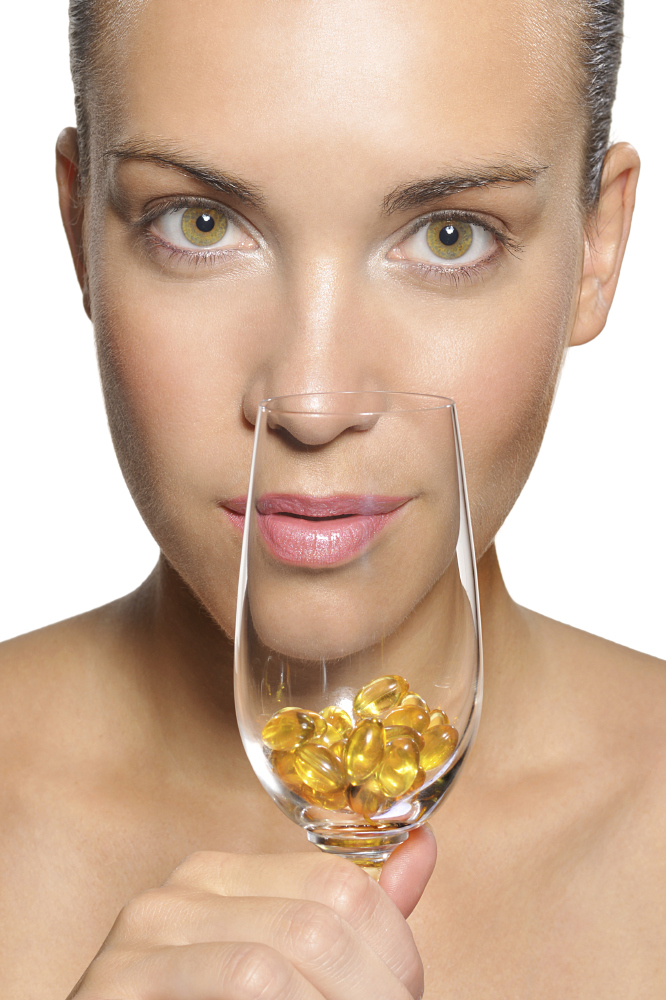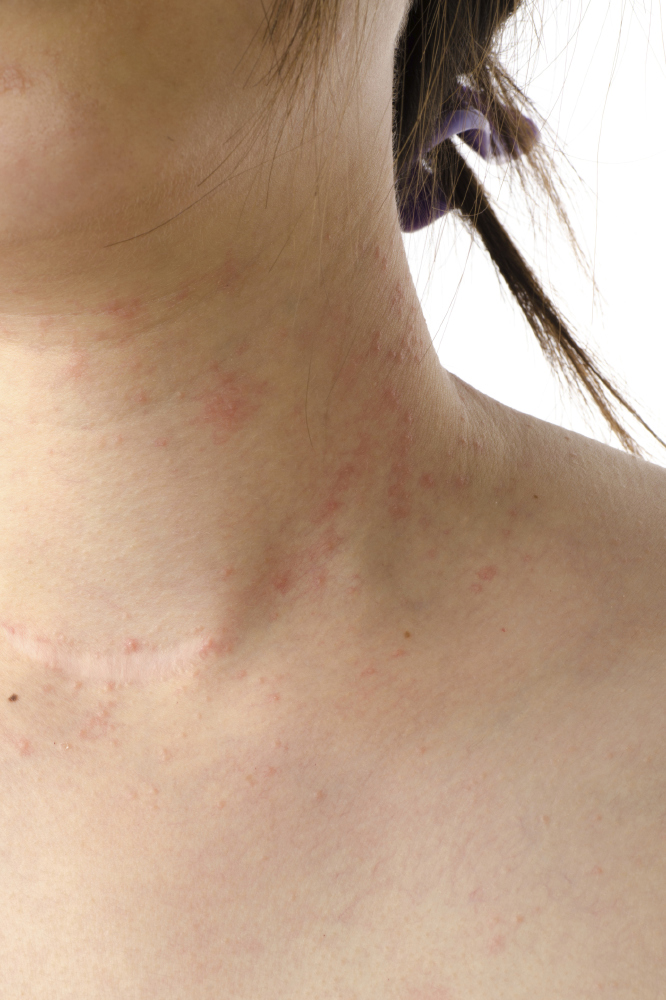If you've experiences a skin condition that makes you feel self-conscious enough to seek medical advice, you're not alone.

Supplements may help ensure your skin looks its best
Recent survey results, commissioned on behalf of skin supplement Colladeen Visage, reveals the most common skin complaints.
And rather than just tell you what they are, we've enlisted the help of Nature's Best Nutritionist Keri Filtness to offer her expert advice on how to tackle them.
Spider veins - what are they?
Spider veins are tiny capillaries that run close to the surface of the skin and look like fine red, or sometimes purple, small wiggly lines. They are most commonly found on the face or legs.
What causes them?
Spider veins may be caused by hormonal changes, exposure to sunlight or low consumption of fruit and vegetables. They occur when a breakdown in the collagen of the skin means the small capillaries grow to close to the skin's surface where they become visible.
Our expert recommends…
Diet: Ensure that you are well hydrated by drinking plenty of water daily as dehydration may lead to fluid retention, causing spider veins to develop. Eat plenty of fruit and vegetables in a variety of colours as these will provide a wide variety of plant compounds which may be helpful as antioxidants to prevent damage to blood vessels and to support collagen production.
Lifestyle: Try to keep your legs uncrossed, as crossing the legs makes it harder for the blood to return to the heart and may lead to small blood vessels being put under pressure. Don't stand for long periods of time and sit up straight, as this will improve circulation. Try and exercise regularly as this will improve general wellbeing and boosts blood flow. Avoid smoking as it increases blood pressure and may increase compounds which damage blood vessels.
Supplement: Spider veins are a sign that the small blood vessel network is under stress, which causes it to weaken. Colladeen Visage strengthens the overly-porous small blood vessels with the added benefit of aiding the main structural protein of the skin collagen. Colladeen Visage costs £18.95, available from www.naturesbest.co.uk
Acne - What is it?

Acne is a common skin condition that causes red pimples on the skin, especially the face, due to tiny holes in the skin becoming blocked. The Sebaceous gland produces sebum, which 'oils' the skin.
What causes acne?
The causes of acne are broad and vary from changes in hormone levels, excess sebum in the skin to genetics; it's common for acne to run in the family. When pores become blocked, bacteria may infect the blocked sebum.
Our expert recommends…
Diet: Eat a nutrient dense diet including foods such as unsalted nuts and seeds, avocado, oily fish, fruits and vegetables and wholegrain products. Try to cut down on processed foods and drink plenty of water.
Lifestyle: Cleanse the skin thoroughly but gently as harsh cleansers can strip the skin of oil. Try to avoid choosing products that contain mineral oil as they can block your pores.
Supplement: A good multivitamin containing Vitamin A, selenium and zinc can help, particularly for acne related to the menstrual cycle. Fish oil may also be useful. It's Omega fatty acids are known to reduce the production of compounds which cause inflammation and this may have an effect on redness and irritation associated with acne.
Eczema - What is it?

Eczema is a condition that causes the skin to become itchy, red, dry and cracked. It often occurs in areas with folds of skin such as behind the knees or the inside of the elbows.
What causes Eczema?
Eczema can be caused by a mix of inherited and environmental factors that can affect individuals at different times in their life. UK diets provide higher levels of the Omega 6 fats, found in vegetable oils, than Omega 3 fats, found in oil-rich fish. One of the consequences of this (sometimes) enormous imbalance is a tendency towards 'inflammatory' skin conditions, including eczema. Environmental factors, such as dust or pollen, can trigger eczema, making symptoms worsen.
Our expert recommends…
Diet: Increase your intake of 'good' fats such as those found in nuts, seeds and oily fish. Keep a food diary to identify any potential food allergies or intolerances which make the condition worse. Always speak to your GP before cutting foods from your diet.
Lifestyle: Avoid the use of harsh detergents and highly perfumed products as these may trigger or exacerbate eczema. Use gentle cleansers, try and wear natural fabrics as much as possible as harsh cleansers and the chemicals used in some cleaning products and cosmetics may trigger or worsen eczema. Natural fabrics are kinder to the skin and reduce sweating which can make some cases of eczema worse and increase the irritation.
Supplement: Fish oil provides a good supply of Omega 3 fatty acids which are involved in the production of compounds which reduce inflammation. Friendly bacteria capsules, such as Acidophilus Extra 4 and a soluble fibre such as Flourishe can help to ensure that there are good levels of beneficial bacteria in the gut and this may have a positive effect on eczema.
Tagged in Beauty Tips skincare

